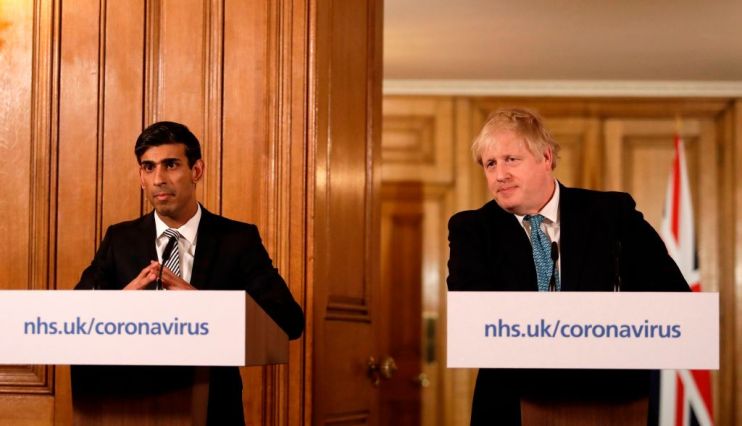Chancellor Rishi Sunak to announce wage bailout plan

Chancellor Rishi Sunak is set to announce a massive wage bailout package today to battle the UK coronavirus outbreak.
Business groups yesterday pressed the government to step in to help pay workers’ wages. They want protection for millions of jobs as the number of UK coronavirus cases spiked again.
Britain’s death toll from coronavirus reached 144 yesterday as infections jumped to 3,269.
And today Marks & Spencer, Wetherspoon and Sports Direct (now Frasers Group) issued profit warnings over the Covid-19 crisis.
Huge disruption to almost every industry could result in thousands of job cuts. That is despite Prime Minister Boris Johnson urging businesses to “stick by their employees” during the UK coronavirus outbreak.
What could wage bailouts involve?
The government is set to reveal more about its wage bailout strategy in an update today.
There is speculation the UK could follow Denmark’s wage bailout lead. That would involve guaranteeing 75 per cent of staff’s wages for three months at private companies. But businesses would need to promise not to make workers redundant.
Such a measure would reportedly be temporary, covering the three months until June. Johnson appeared to suggest the UK coronavirus crisis should have peaked by then.
Dame Carolyn Fairbairn, director general of the CBI, said companies will be “watching carefully to see what government support” arrives.
Speaking to the BBC, she added: “France, Germany, Spain, Italy have put employee wage support in place and if that comes through quickly I believe there are businesses who will take a different decision because they want to keep their people.”
What should a wage bailout look like?
Colin Leckey, partner at law firm Lewis Silkin, urged the UK government to replicate Denmark’s wage bailout.
“Employers are crying out for a package like Denmark’s where the state effectively underwrites payroll for a period of time,” he said.
“All week we have been hearing from employers scrambling to cut staff pay and hours, put people on unpaid leave, and even implement emergency and wide ranging redundancy exercises, because they are panicking and can’t see an alternative.
“While some sectors are worse hit than others, such as retail, hospitality and leisure worst of all, only this sort of massive state intervention is likely to slow down mass layoffs and measures such as this.”
TUC general secretary Frances O’Grady said: “The chancellor’s announcements so far will help protect businesses. But he must now urgently step up the protections that workers need too.
“Many other counties are using government wage subsidies to stop job losses and keep up economic activity. We need it too.
“And government support to businesses must be conditional on them producing a plan to protect jobs and wages.
“Unions and business want to fully play their part in protecting the nation. The government must urgently bring them together a national taskforce, so we can put these measures into action in the best way for working people and our economy.”
Government measures to tackle UK coronavirus crisis
The wage bailout is set to build on other measures to protect the UK economy. The government has already pledged £330bn in loans to keep businesses afloat during the UK coronavirus crisis.
And the Bank of England has slashed interest rates to a historic low of 0.1 per cent in a bid to encourage spending. That makes it incredibly cheap to borrow.
New governor Andrew Bailey also announced £200bn of quantitative easing. He warned introducing similar measures at a scheduled meeting next week would be too late.